Do you collect things for fun like teddy bears? Do you collect things for money like coins? Are you just in the 'thinking about it' mode? Then you will want to read this article.

Are you a collector of 'things' whether for money or fun?
by cherylone
'How to' information for the collector in all of us.
Let's begin with the basics of collecting-or the unspoken rules.
For those who are already collectors, you will know many of the 'unspoken rules', but beginners won't, so I will review them for those who are just starting out.
If you want your collection to be something that will eventually be worth something, then you have to research to see what is a good collector item. Coins, gold, and popular items are usually good items to collect. Things like shells, though pretty, don't usually make good collections if investment is your goal.
Sometimes we collect things we like rather than things that are worth something, and that’s okay as well, however, these items may not be worth anything in the future, just so that you are aware of that.
Collections are only worth something under certain circumstances: They should be in original containers and unopened. They should be in excellent condition (untouched, no dirt, no dust, etc.). They should be carefully stored to avoid moisture or heat damage. They should be original items (not duplicates made by another manufacturer) and they should be marked as such. Dated, and/or signed items are worth more provided they are originals. And the most important item is: someone must want them!
Do you have the means to collect expensive things? Or are you spending the rent money for that antique dresser that you have no place to store?
Once you have chosen the item you want to collect, you must decide how much money you are willing to spend to get the items. If you are struggling to make ends meet on a regular basis, then it wouldn’t be prudent for you to spend the rent money on a collectible that won’t be worth anything for many years to come; if you can keep it safe for that period of time, that is. Smaller items are easier to store away, but they are also easier to damage, so care will have to be taken. Whatever you decide to collect will have to be stored somewhere until their value has increased; use common sense for this step.
It takes decades for items to become valuable as a collectible. That means that the baseball cards you bought yesterday to add to your card collection probably won’t be worth as much as you paid for them until they have been passed to your son. And they won’t be of any collectible value until they have passed to your grandson’s grandson.
Okay,now that we have covered the basics...
Let's take the first step into collecting, and talk about the things we can collect, and whether they will be good items to collect.
Cards (character cards, gaming cards, racing cards, even cards of popular TV shows)
Cards are just about the most popular item to collect...
They can be stored in plastic card sheets that can be stored in binders. Binders don't take up much room. They can also be stored in boxes, sleeves, or even small totes because they are so small.
However, cards are cardboard or stock paper which is very hard to keep in top condition. The grease from your fingertips will cause damage to the card every time you touch it and you might bend it putting it in your pocket until you get it home or trying to put it in a sleeve, etc. Try not to open the package at all and the cards will be safer (and because they are in their original package, they may be worth more). One of the biggest reasons cards are so popular--they are relatively inexpensive to purchase and just about anyone can acquire them.
Dolls
Dolls (character dolls, baby dolls, porcelain dolls, etc.) along with all of the accessories that go with them are great collectibles. However, this type of collection is extremely hard to store and keep safe because you have a lot of tiny parts that could get lost. Also, some dolls are large and bulky making them difficult to store. Storage in a back closet or basement might cause moisture, discoloration, or dust damage. Mice tend to like soft things so dolls are a favorite of theirs. These items should be stored in their original containers somewhere where they won’t be damaged by animals, heat, cold, moisture, or weight. Plastic totes are good, however the totes should be stored in a climate controlled, pest-free environment.
Stuffed animals...
Such as elephants, bears or bunnies. These are cloth and therefore extremely difficult to protect. In fact most stuffed animals don’t come in a box of any kind, making them even harder to protect. For the best protection, store in a clean, dust free, pest free environment (the mice like stuffed animals, too). Keep the tags on them to increase their value and purchase specific name-brand animals with dates or special names. Be careful, however, because most stuffed animals, even if dated or named, are not collectible items and won’t be worth very much in the future.
Small metal or plastic cars and/or vehicles.
While these are sometimes quite intricate in their make and design at times, and they can have brand names or company logos on them, they are a bit awkward to store, especially if they have small pieces that can get lost. Many of these items, however, come in packages with all small parts sealed in. If that is the case, be sure to keep the item in its original packaging not only for a higher value, but to protect those tiny little accessories. Often, these vehicles will be sold in stores with the store logo on them, or they may be special editions from a company with date and special features.
They are often good collectibles, but be careful how you store them. Metal items will rust if they get wet and plastic can warp in extreme heat and/or cold. Also, moisture may make stickers or paint come off in time.
Stuffed or ceramic frogs.
While frogs are great items to have in the garden, or bathroom, etc. they don’t usually lend themselves to be a collectible. Frogs are everywhere and will probably be around for many years to come. It is rare to find a unique frog, but if you do, snag it. That unique frog might actually be worth something in the future. However, frogs ARE fun to collect.
Furniture....
No matter what it is....
Furniture becomes more valuable as it ages, in most cases. However, furniture is large and bulky making it difficult to store. Furniture is susceptible to moisture, dust, dirt, grease, scratches and other damage. Furniture also tends to break apart when it gets old. Extreme care must be taken to protect furniture if you plan to collect it. Also, furniture that is new to you, won’t be considered antique until it is 100 years old and still in good condition. If you chose to collect furniture as an investment, you might want to go to yard sales and auctions to find furniture that is already well on its way to becoming valuable. Be prepared, however, because you will have to dish out some money when trying to make an investment in collectible furniture.
No, the rusty metal desk you bought new and left outside is not considered a collectible...
Cars, full-sized, running or not...
Are excellent collectibles, provided you have a great deal of money to invest and a safe place to store them. However, these cars are hard to come by. To buy one and rebuild it is also very expensive because the parts for it are no longer made and must be custom built for your particular vehicle.
Also, if you plan to drive the car on the road, it must meet at least the basics for safety requirements of the state, or country where you live. For instance, you must have turn signals (or be prepared to demonstrate hand signals). You must have head lights and brake lights. Check with your state/country for motor vehicle requirements to ensure you are safe if driving these vehicles. Otherwise, you might want them to be towed to each destination even if they do run. And be careful of all those kids and dogs running around them because scratches reduce the value.
Guns of all types...
Guns are a great collectible item; however, they can also be very dangerous. If you are collecting guns, you need to keep them unloaded and in a locked cabinet especially if there are young children around. Children love the lure of guns and can harm themselves or others because they don’t know how they work.
In order for guns to be a collectible (a valuable collectible) they must also be operational. That means they must be regularly maintained for best performance. This is expensive and time consuming. Plus, guns must be registered where ever you live. Most gun collectors are extremely dedicated collectors. Like furniture, guns aren’t usually worth much as a collection unless they are very old.
There are hundreds of things out there that you can collect.
Just do your homework first. If the item you are collecting doesn’t have any value or is damaged in some way, there will be little or no market for it. If the item is something that no one wants, there will be no value (that’s not to say that it will never have value in the future, it just might not seem like a sound investment at the moment). Also, if you choose to collect for the investment value, you should be certain that you have the correct item (make sure you know your stuff) and be certain you have a safe, protected place to store it.
Sometimes we find that things we have had all of our lives have suddenly taken on some kind of value, like that old bean pot your great-grandmother used. You didn’t know what to do with it, so you put it in the attic. Now you are trying to clean out the attic and you find it sitting in a corner. Before you throw it out, check with several dealers because that pot isn’t made anymore and might now have some value to a collector.
Other items that could be collected:
Of course, there are so many more than I have listed here.
Angels, Bikes, Books, Calendars, Coins, Decorations, Dishes, Erasers, Glasses, Holiday items, Jewelry, Knives, Lamps, Legos, Maps, Newspapers, Old appliances, Old deeds, stocks, bonds, etc., Pans, Pencils, Pens, Real estate, Religious icons, Shoes, Stamps, Statues, Stones, Swords, Tape collections, Tools, Tractors, Vases, Video games, and Watches.
As with all collections, if you are collecting for the investment, be careful to buy unique or marked/dated items, be careful to store them correctly, and check for value before you invest. If you are collecting for fun, then go for it and have a ball. Just remember, those things have to go somewhere, and when all of your little niches have been filled, well, you might want to ease up, unless, of course, you like sleeping with your collections!
You might also like
Vintage Definition | Antique DefinitionThe terms "antique" and "vintage" have caused confusion to more than one shop...
How To Sell AntiquesA few suggestions on how to sell your antiques and collectibles in a brick an...
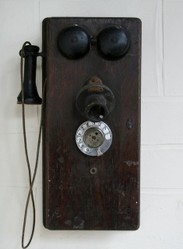

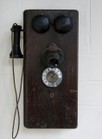

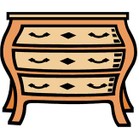
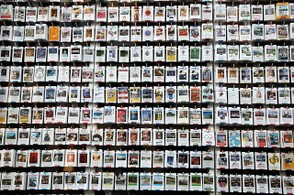
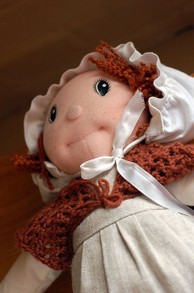
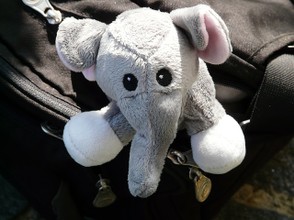
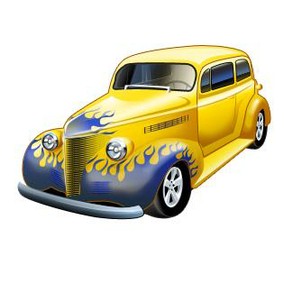

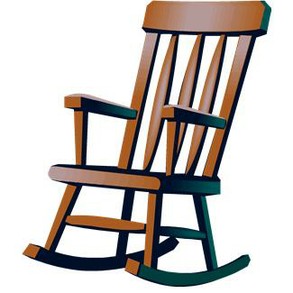
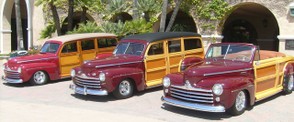
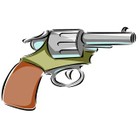
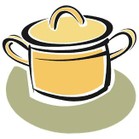



 Fruit and vegetable juice or whole fruits and vegetables, which is better for youon 04/23/2013
Fruit and vegetable juice or whole fruits and vegetables, which is better for youon 04/23/2013
 How to use memory wire to create jewelryon 12/19/2012
How to use memory wire to create jewelryon 12/19/2012
 The Spriteon 11/27/2012
The Spriteon 11/27/2012
 How to keep your feline companions safe and content during the holiday seasonon 11/10/2012
How to keep your feline companions safe and content during the holiday seasonon 11/10/2012

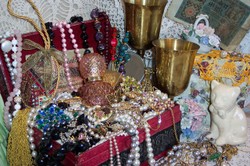
Comments
Tolovaj, I am so glad you enjoyed this and that I was able to give you helpful tips. I agree with you, most people begin collecting not for profit but for the passion of the collection. I myself have a few I'm kinda passionate about, but I doubt collecting stuffed frogs will ever make me money LOL. Thank you for stopping by and commenting.
Great overview on collecting. I think there is a collector in everyone of us just waiting to take charge... I also believe there are many thing out there which can be collected and have a potential to earn some money to its owner soon or later but the main drive to start a collection is hardly ever possibility of profit. There is passion, sometimes very intense passion behind every great collection and this can't be measured with money.
Thanks for some useful tips about collecting.